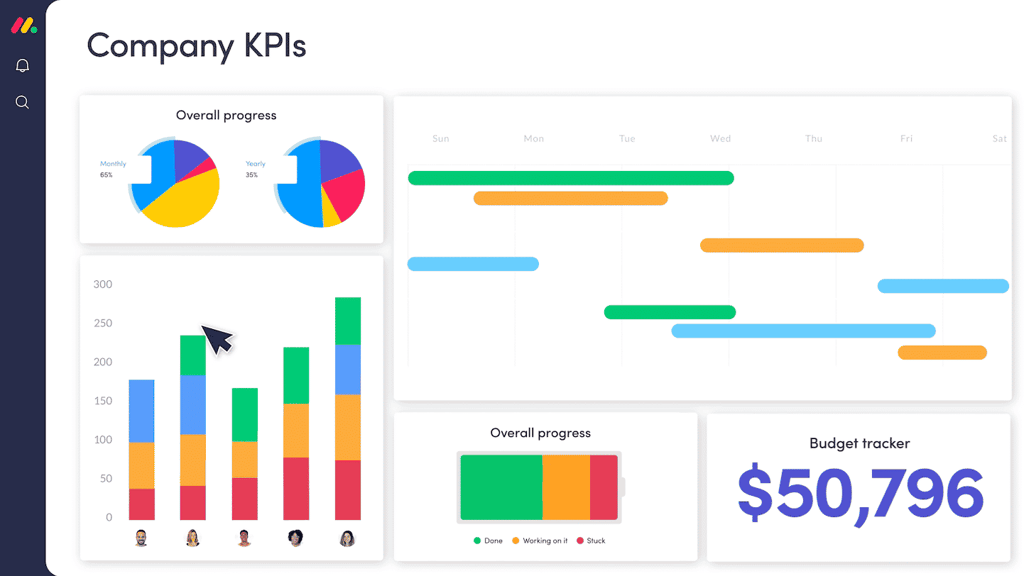The Internet has been around for a number of decades, and what an impact it has had on modern society! Social networking, Blogging, Instant Messaging and Podcasting are just some of the near revolutionary concepts that have arisen from the existence of the World Wide Web (now commonly referred to as “the Web”).
For those of us who make a living from the Internet or spend a substantial amount of time on it, knowing how it originated is certainly worthwhile. Understanding the underlying concepts that led to the birth of the Internet can also help us get an idea of what the future may hold.
The Internet and the World Wide Web
Firstly, is there a difference between the
“
Internet
”
and the
“
World Wide Web
”
? Indeed there is. The Internet can be defined as the
“
interconnected system of networks that connects computers around the world via the TCP/IP protocol
”
. The Internet enables the World Wide Web to exist.
The World Wide Web is the complete set of documents residing on all Internet servers that use the HTTP protocol. These documents are accessible through a web browser and can be navigated by using hyperlinks that have been implemented using HTML (HyperText Markup Language). In short, the WWW is the web of interconnected pages and files that we are so used to browsing today.
The Internet has been around a lot longer than the Web. The Web has only been in existence since the early 1990s. Even so, it is amazing how quickly it has gained the kind of user base that it has. Here are some statistics to demonstrate its growth. The figures below show the number of hosts online (with a registered IP address) over a period of 10 years.
Jan 1995 5,846,000
Jan 1996 14,352,000
Jan 1997 21,819,000
Jan 1998 29,670,000
Jan 1999 43,230,000
Jan 2000 72,398,092
Jan 2001 109,574,429
Jan 2002 147,344,723
Jan 2003 171,638,297
Jan 2004 233,101,481
Jan 2005 317,646,084
In July 2005 there were an estimated 353,284,187 hosts online. This figure will be even larger now and is still growing. See http://www.zakon.org/robert/internet/timeline/ for more information on the Internet and how it has progressed over the years.
Pioneers of the Internet
It would be incorrect to state that a single person invented the Internet. Rather, many individuals have been involved with developing the concepts and systems that have grown into the Internet and World Wide Web. Some of these pioneering individuals are mentioned below.
Vannevar Bush was born in 1890 and died in 1974, a long time before the World Wide Web came into existence. In 1945, Bush published an article entitled “As We May Think”. The purpose of this article was to emphasise the potential benefits of applying science to the assistance and automation of human thought.
In Bush’s article, he outlines a theoretical machine called a “memex”. Looking back, we can see clear similarities between Bush’s contraption and the modern day desktop setup. The memex used microfilm for storage and enabled a person to store a whole library of information at their desk. Multiple articles could be called up on dual screens and logical connections made between them.
The concept of linking items or articles to create trails of thought that could be revisited at a later date is very similar to modern day hypertext. Bush truly was a visionary.
Paul Baran was another Internet pioneer with ground-breaking ideas. Baran suggested the concept of distributed networks where there was no centralised switch. This model formed the basis of the Internet as we know it. Another of Baran’s ideas was “packet switching”. This involved messages being divided into message blocks or segments.
Larry Roberts was another Internet pioneer who directed the team of engineers that built the ARPANET. Doug Englebart, Ted Nelson and Vint Cerf are some other individuals whose contributions are worth consideration.
Tim Berners-Lee is the modern day inventor of the World Wide Web. Berners-Lee put forward a proposal outlining the World Wide Web in 1989 and got working on his idea over the next couple of years. The first ever web page put online by Tim can be found at here. Berners-Lee created HTML as well as the first web server software.
Remember Where It Came From
It can be said that many people have had an influence on the development of the Internet and the World Wide Web. Now that you know where the Internet, World Wide Web, and Hypertext came from I’m sure you’ll feel enlightened. It is worthwhile remembering that the Internet and World Wide Web aren’t the same thing. Not exactly life changing stuff but worthwhile knowing nonetheless!
Knowing how to make the most of the WWW brings the greatest gain. Keeping an eye on news and developments related to the Internet and Web can help you keep up with what’s going on. The Web gained a worldwide grip on society within a decade. Give it another decade and who knows what may follow. The possibilities are endless…
Author Info:
Jon Jackson is a UK based web developer specialising in CSS, PHP and MySQL. He operates under the name of Acuras Web Development, and his site can be accessed at http://www.acuras.co.uk









